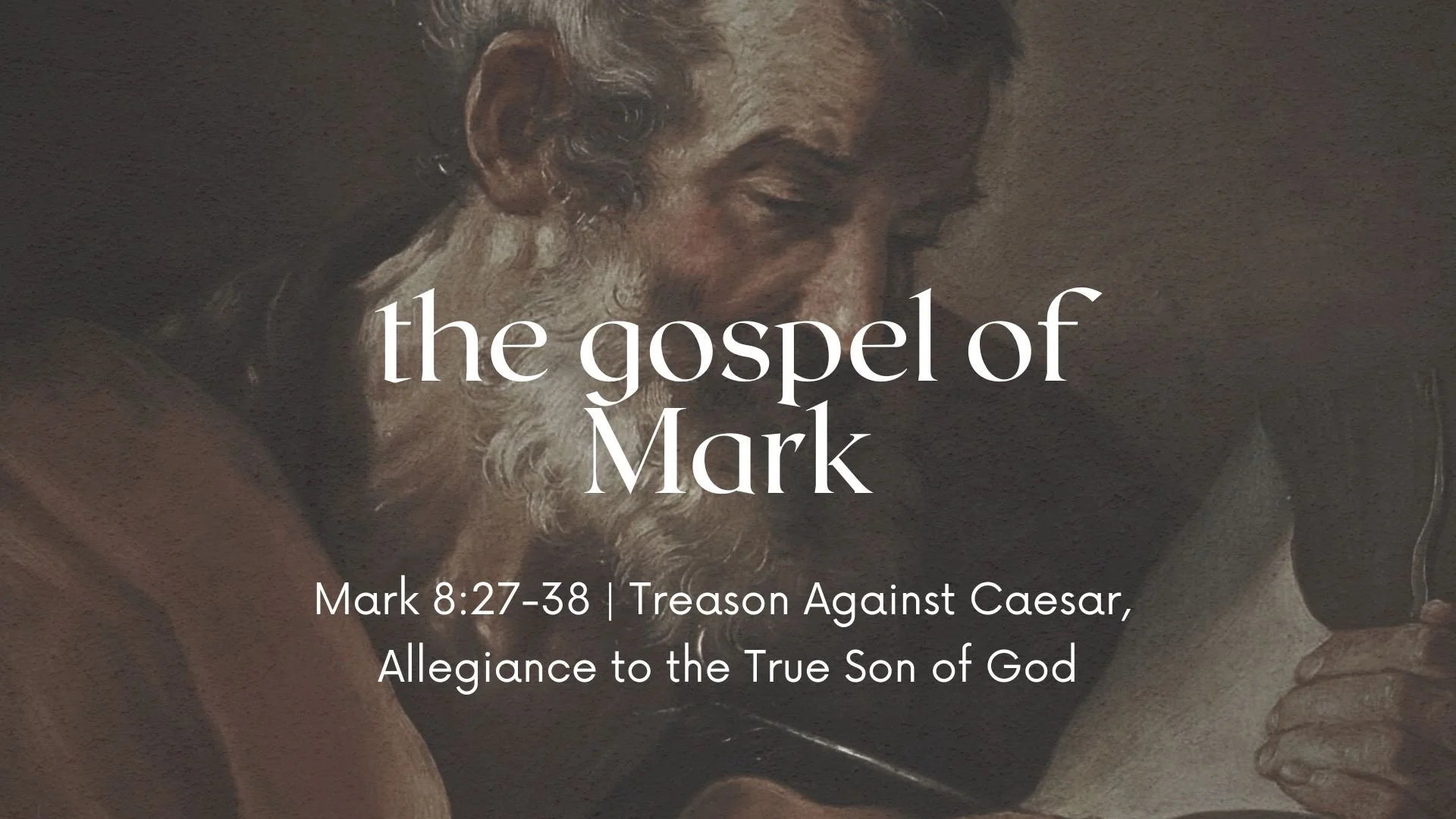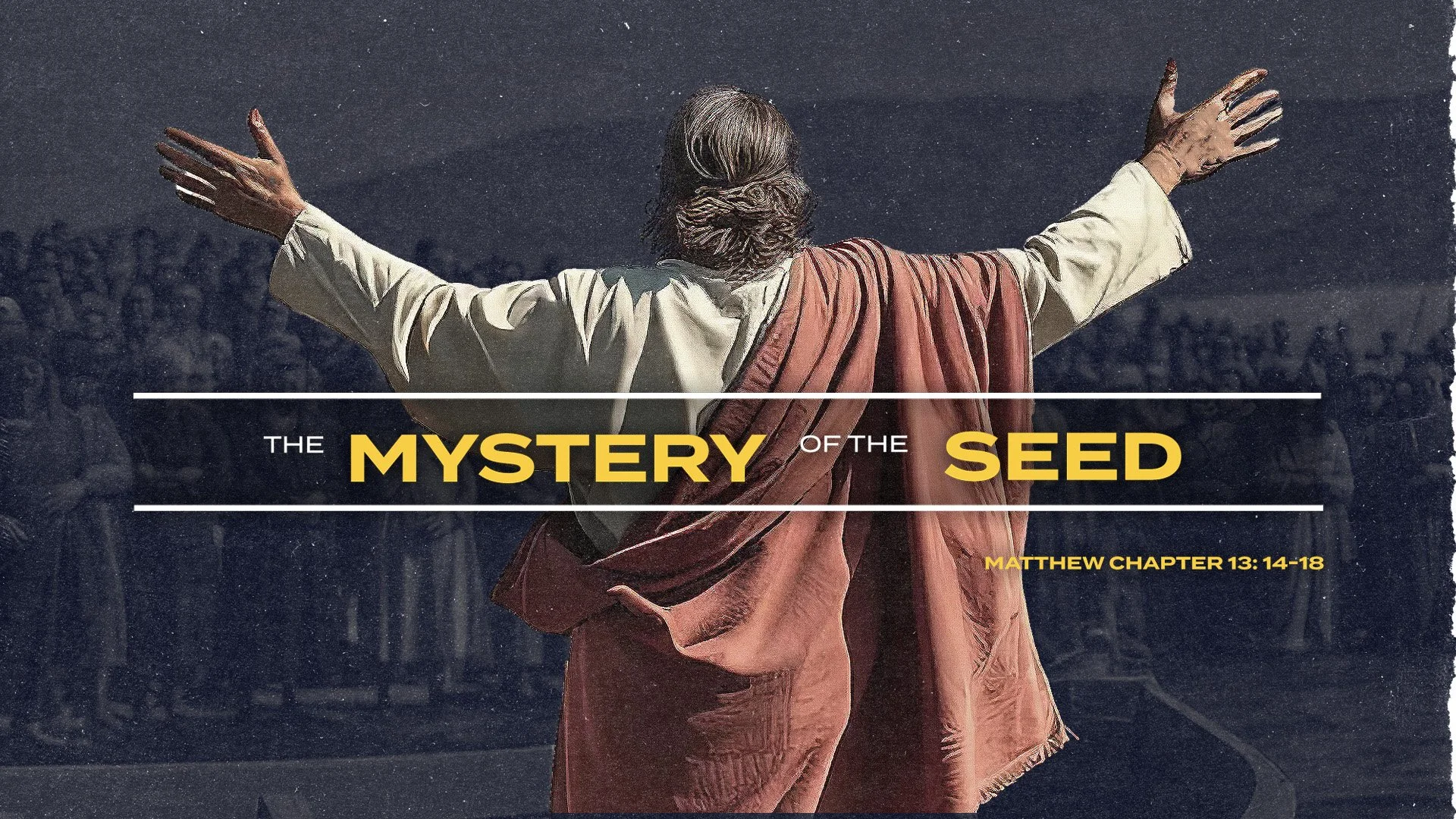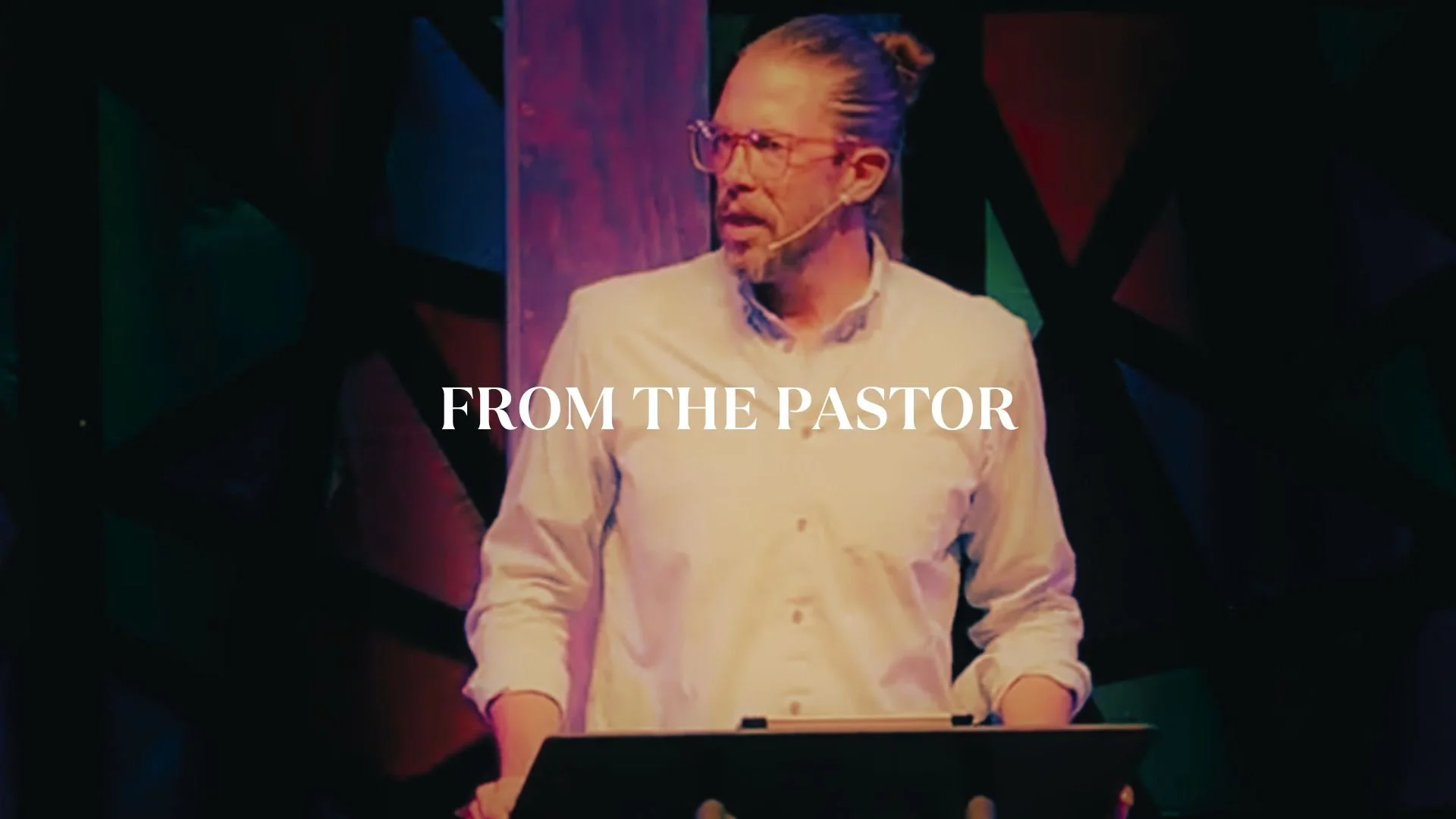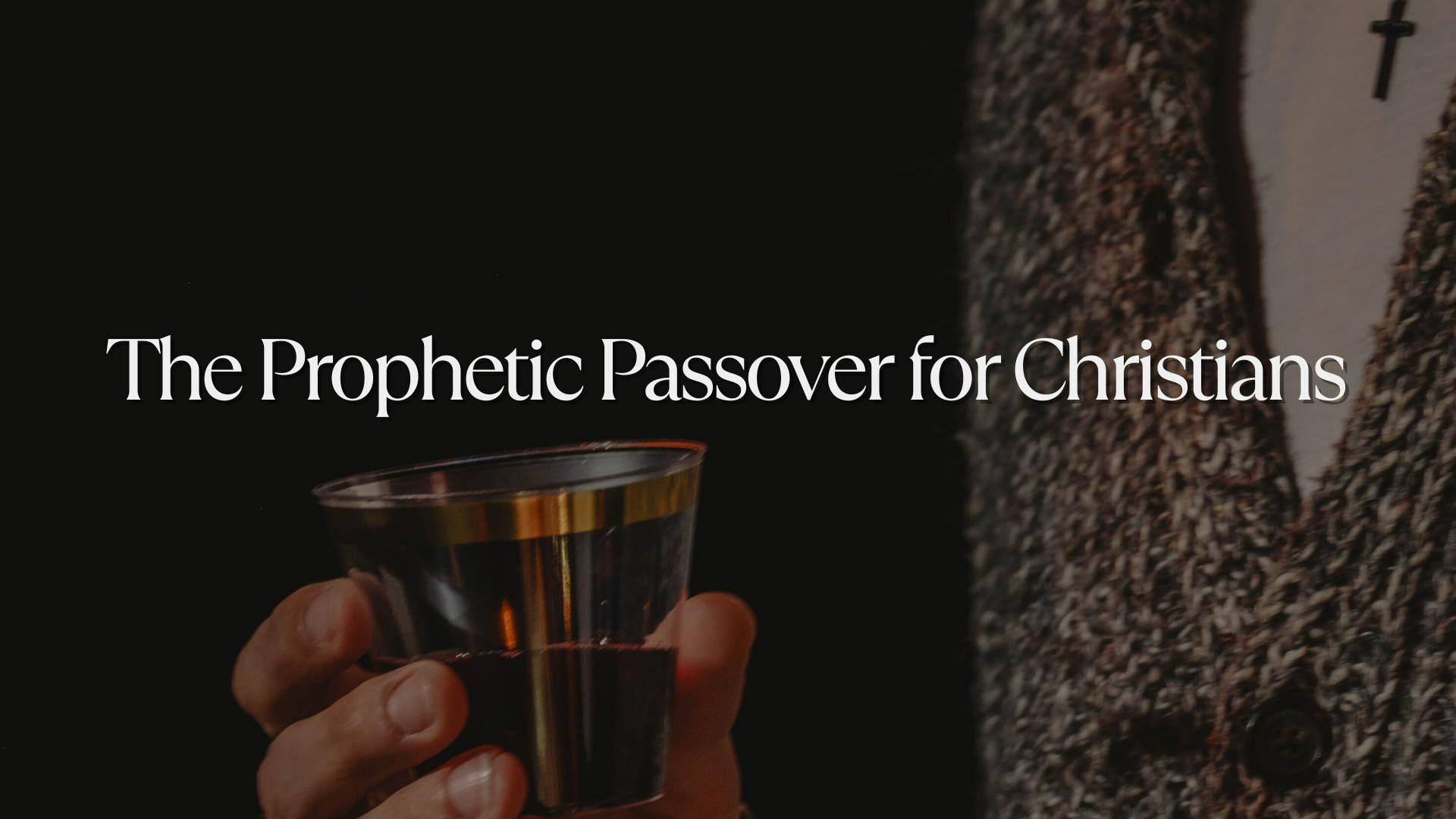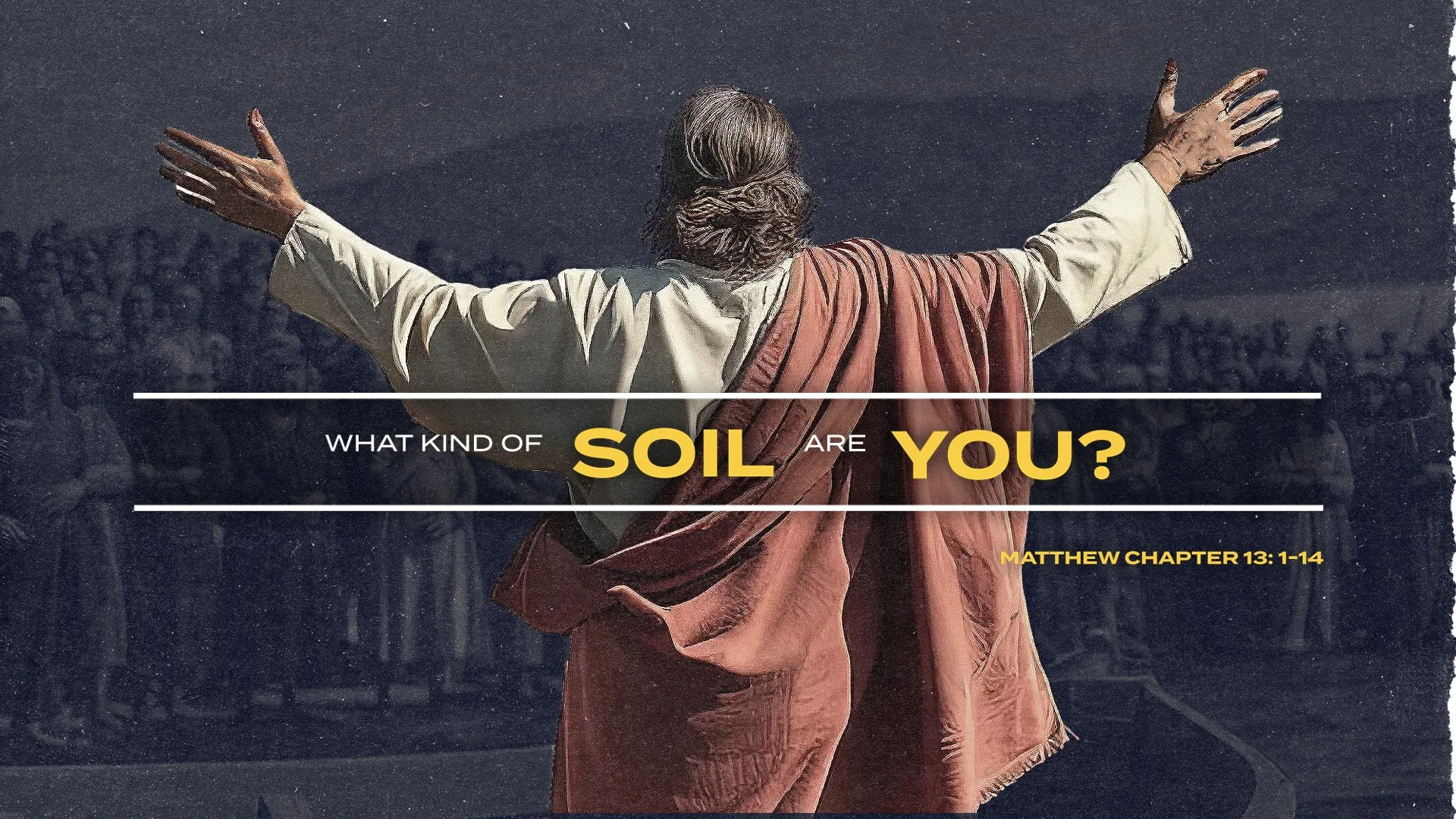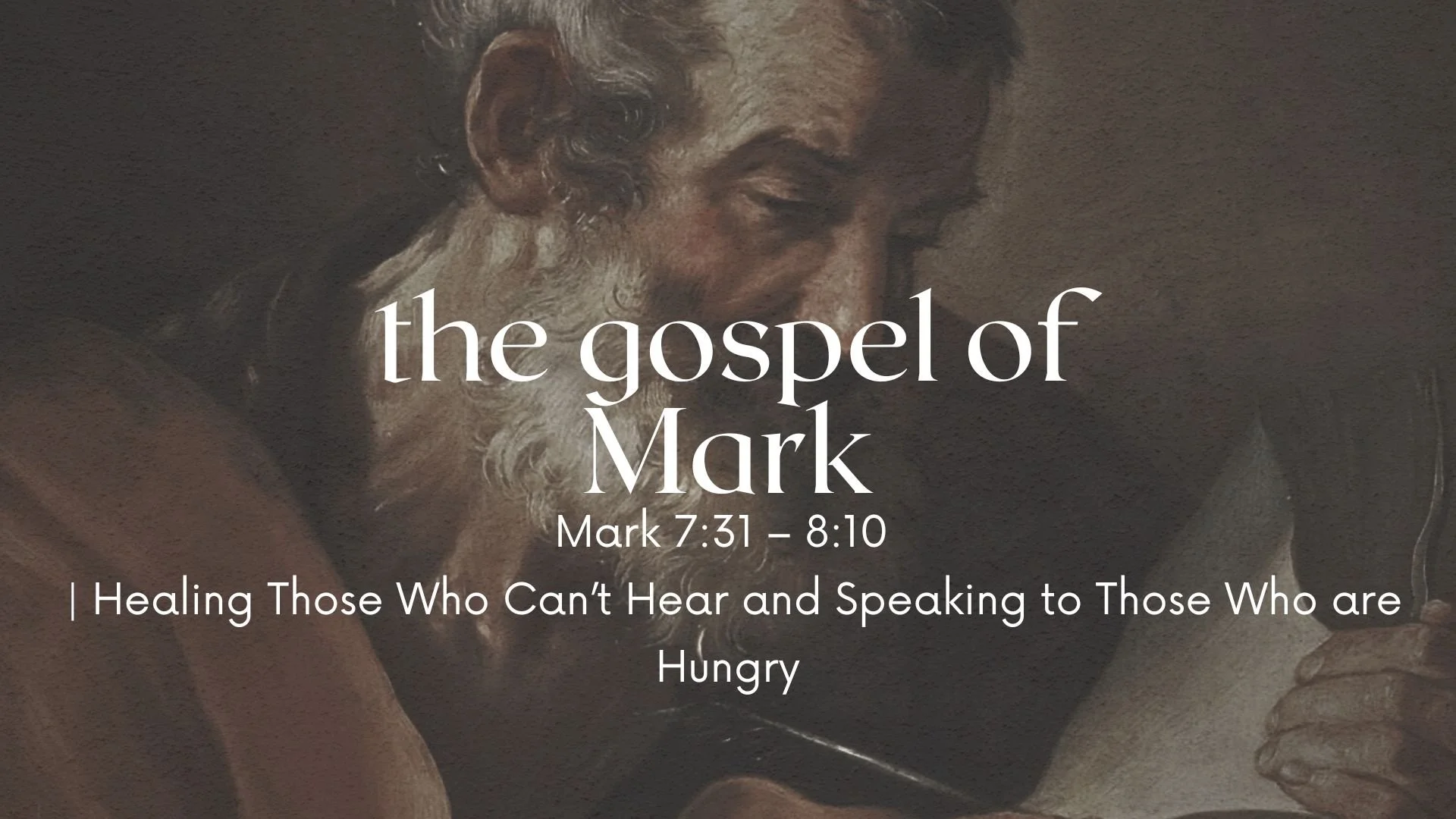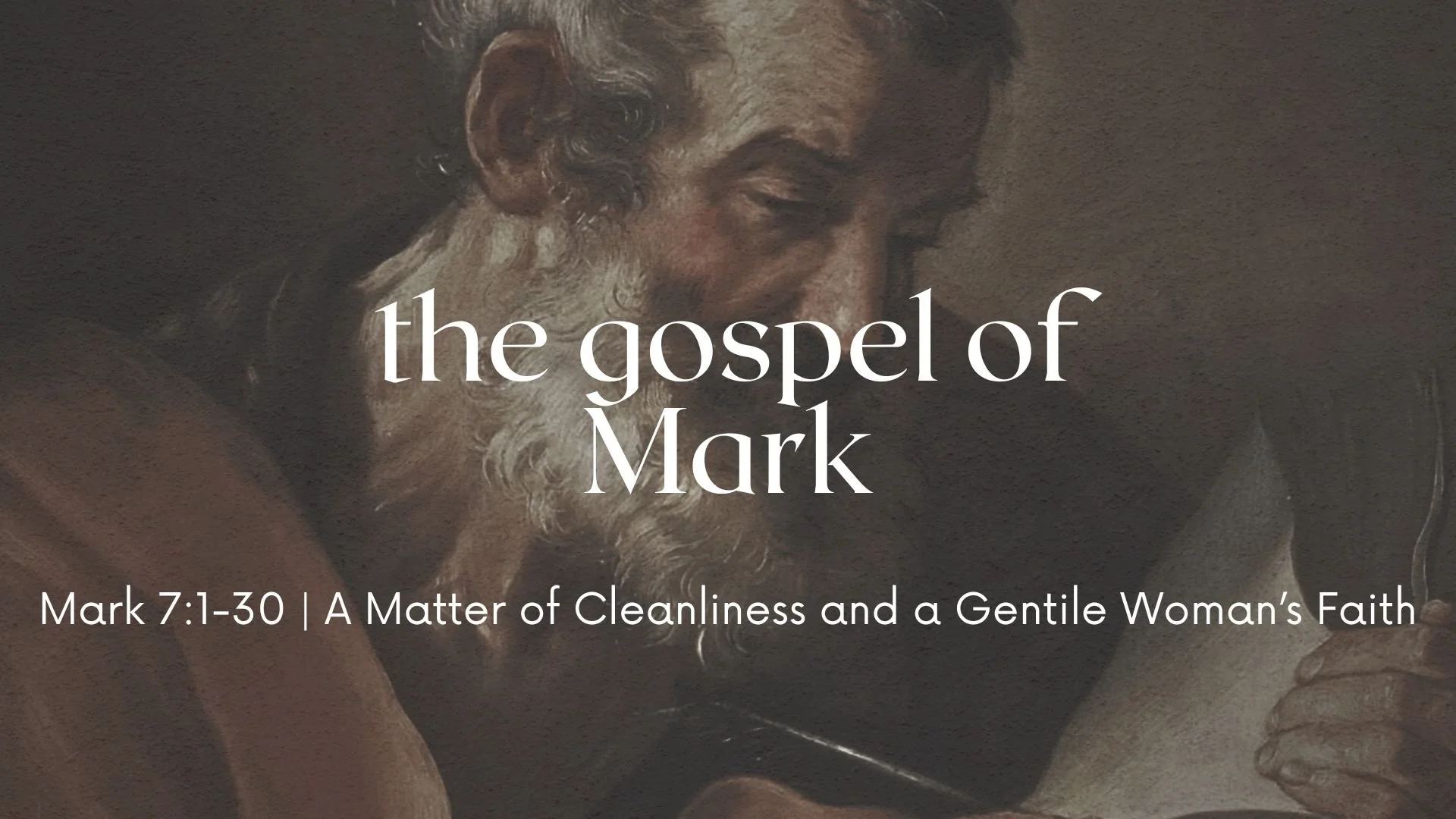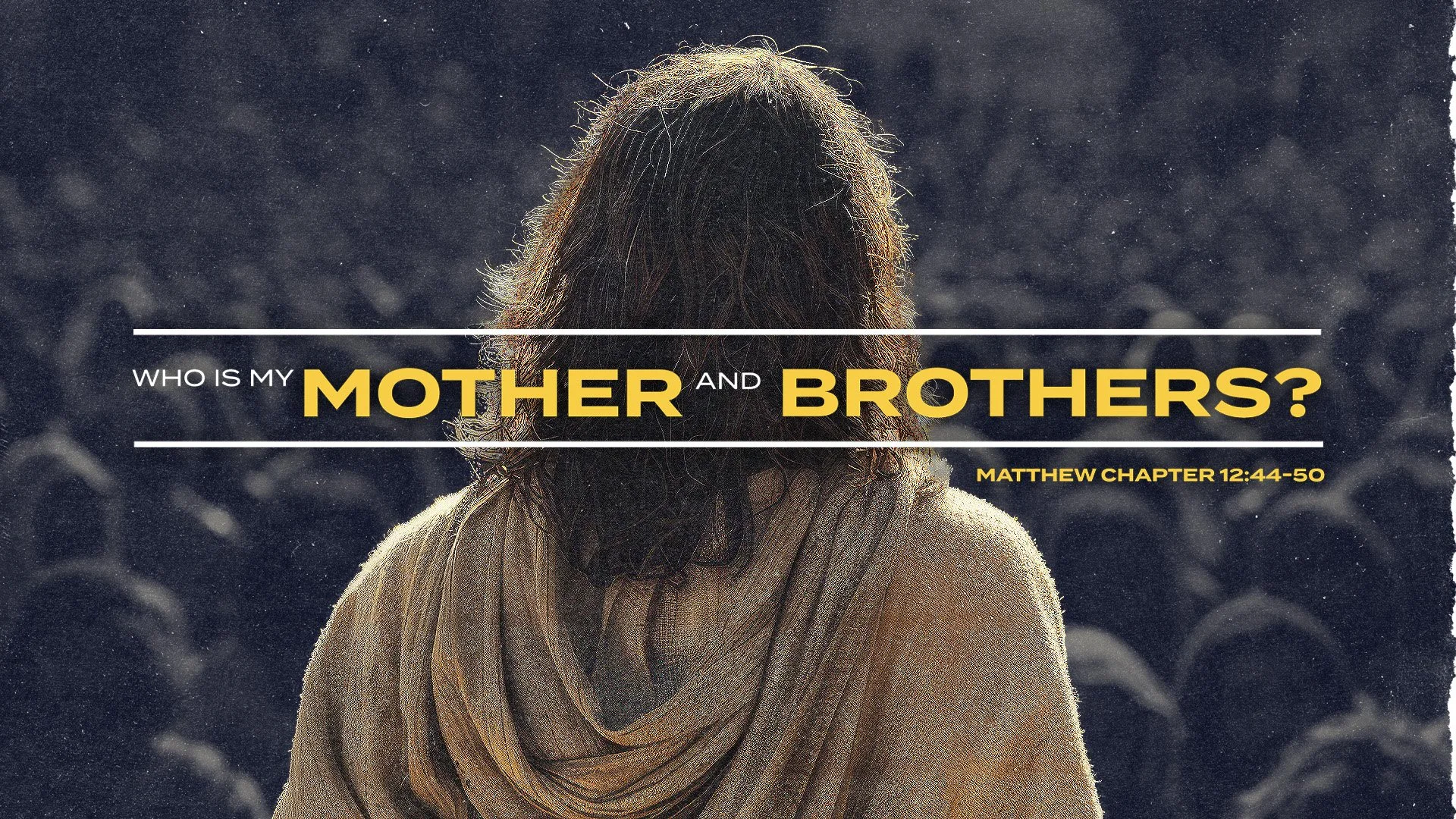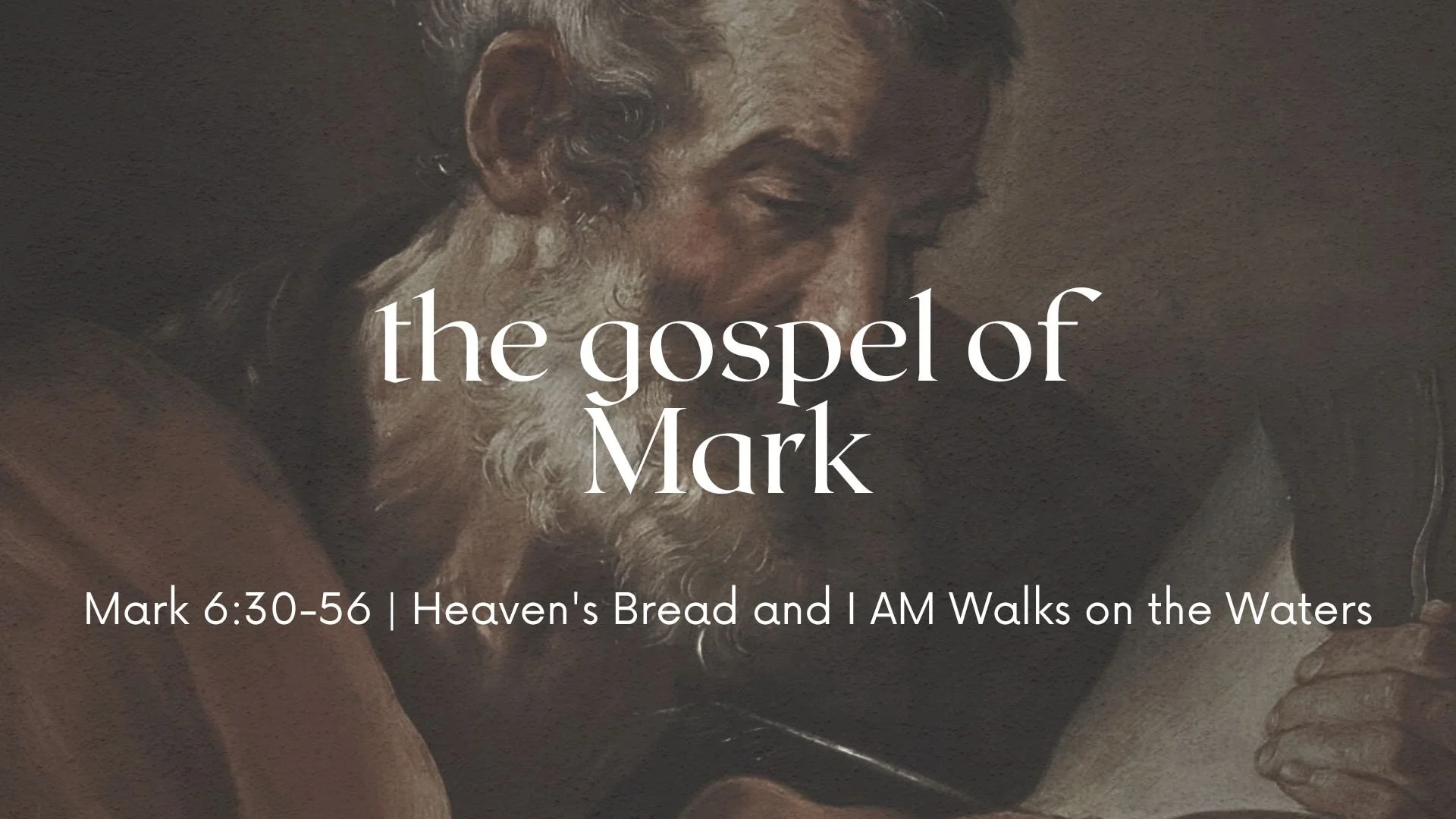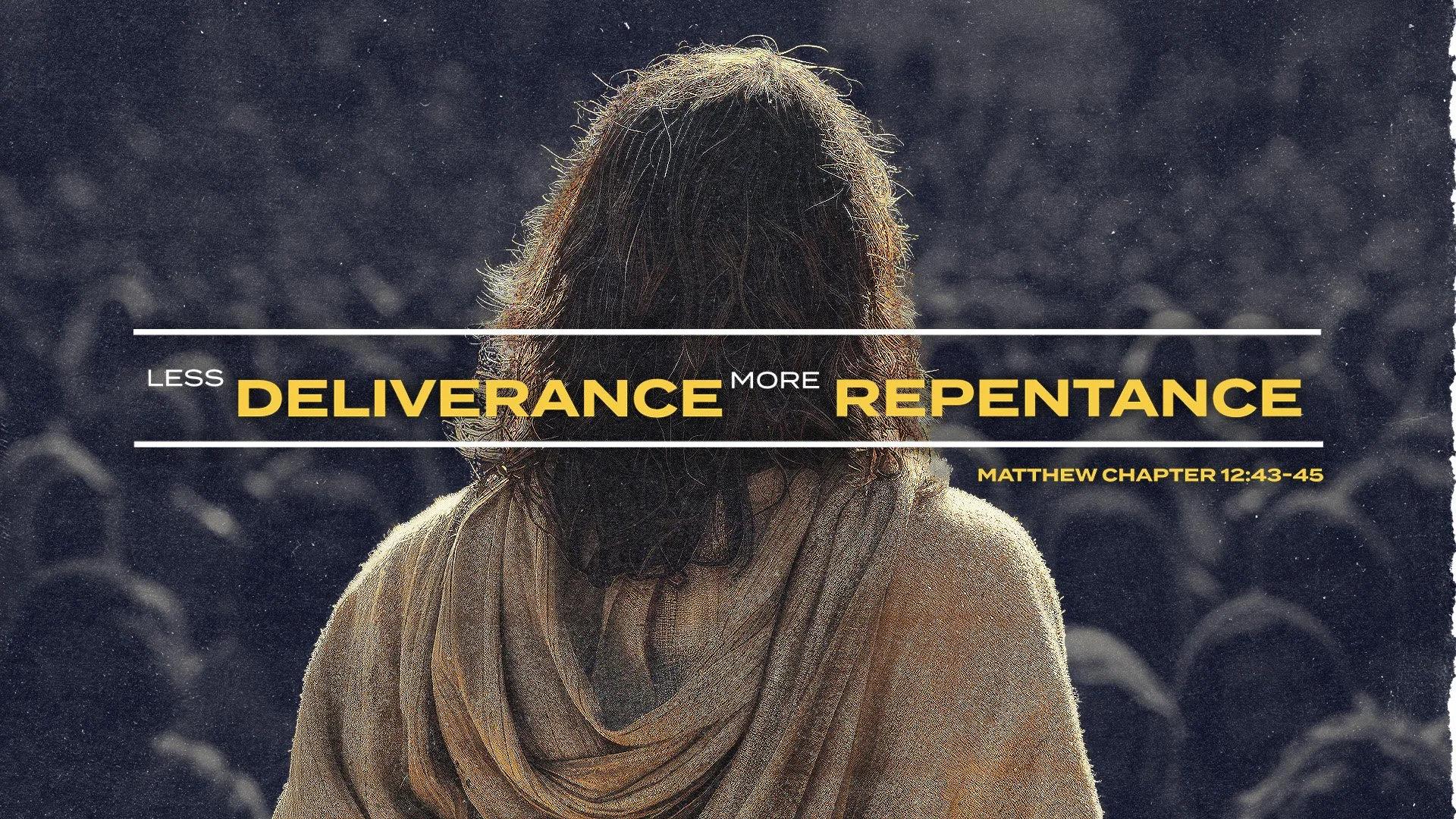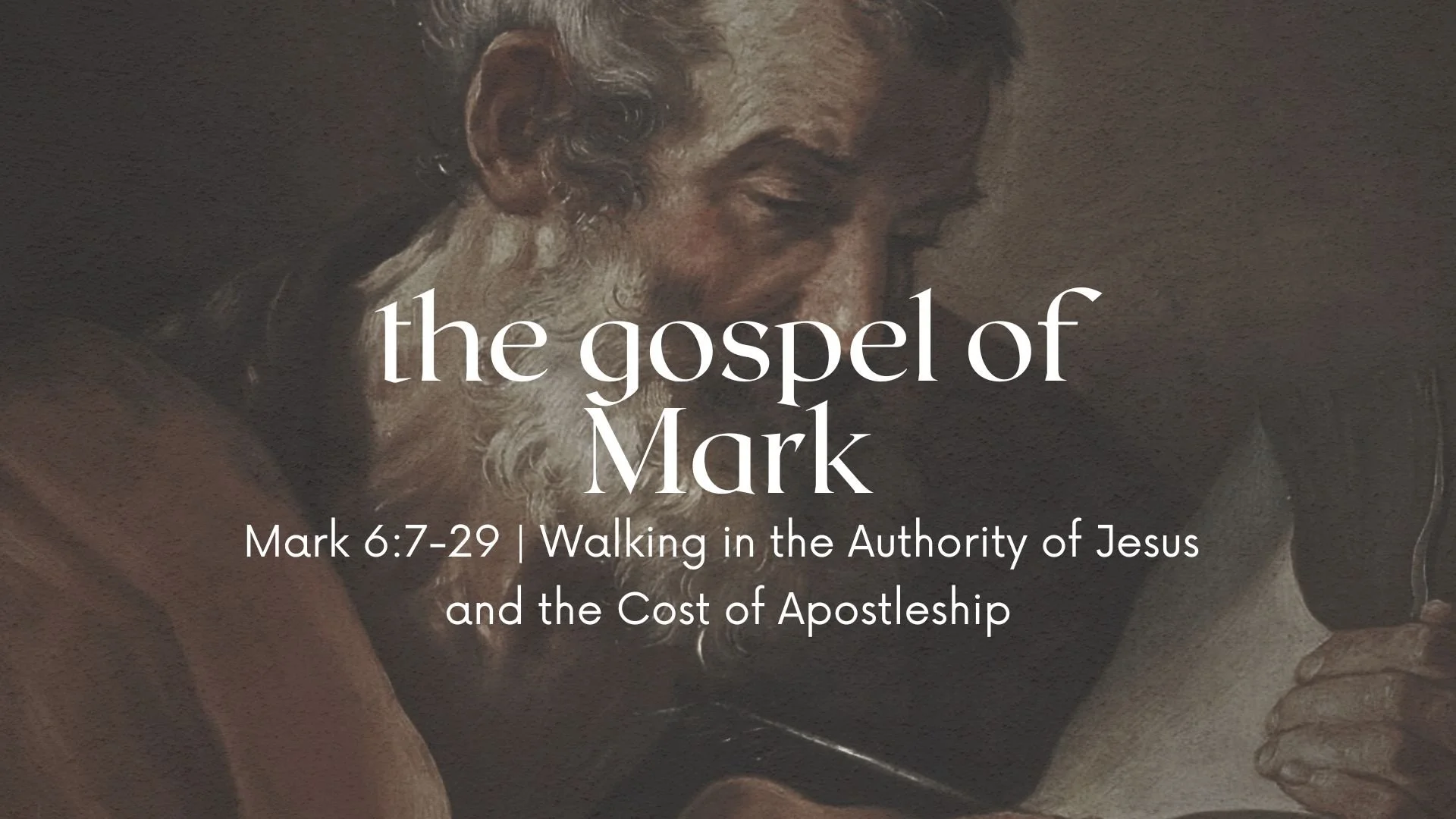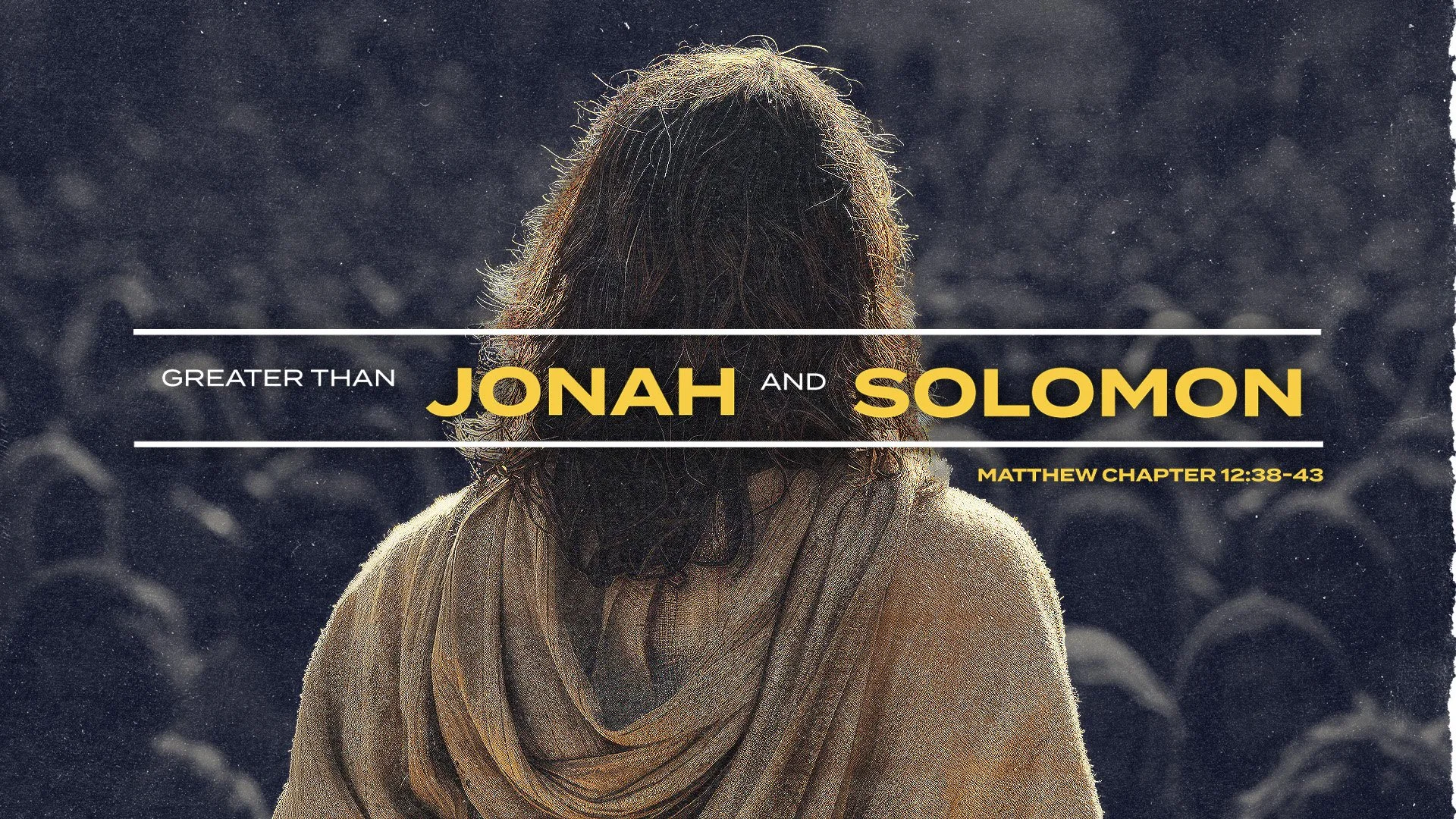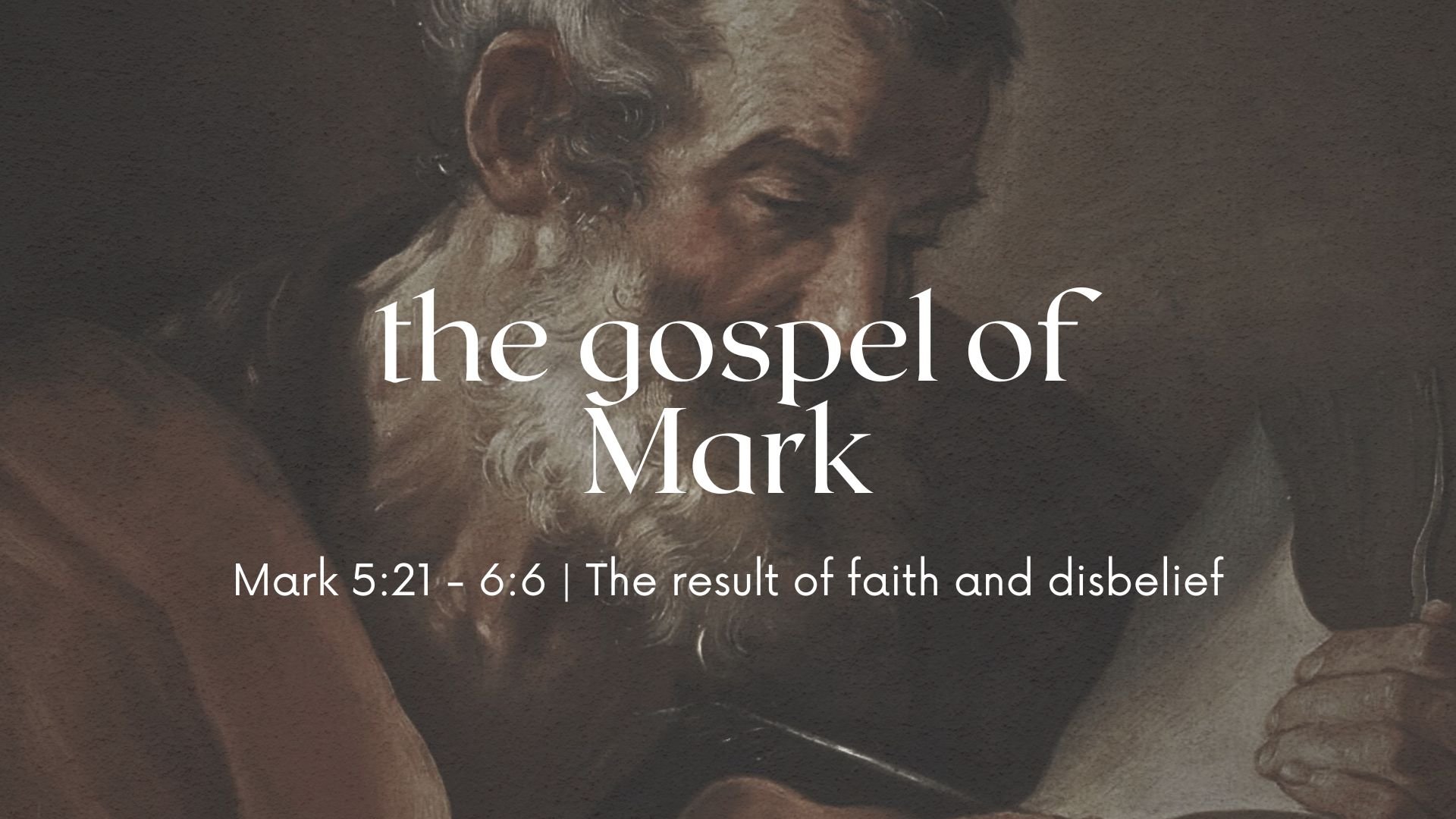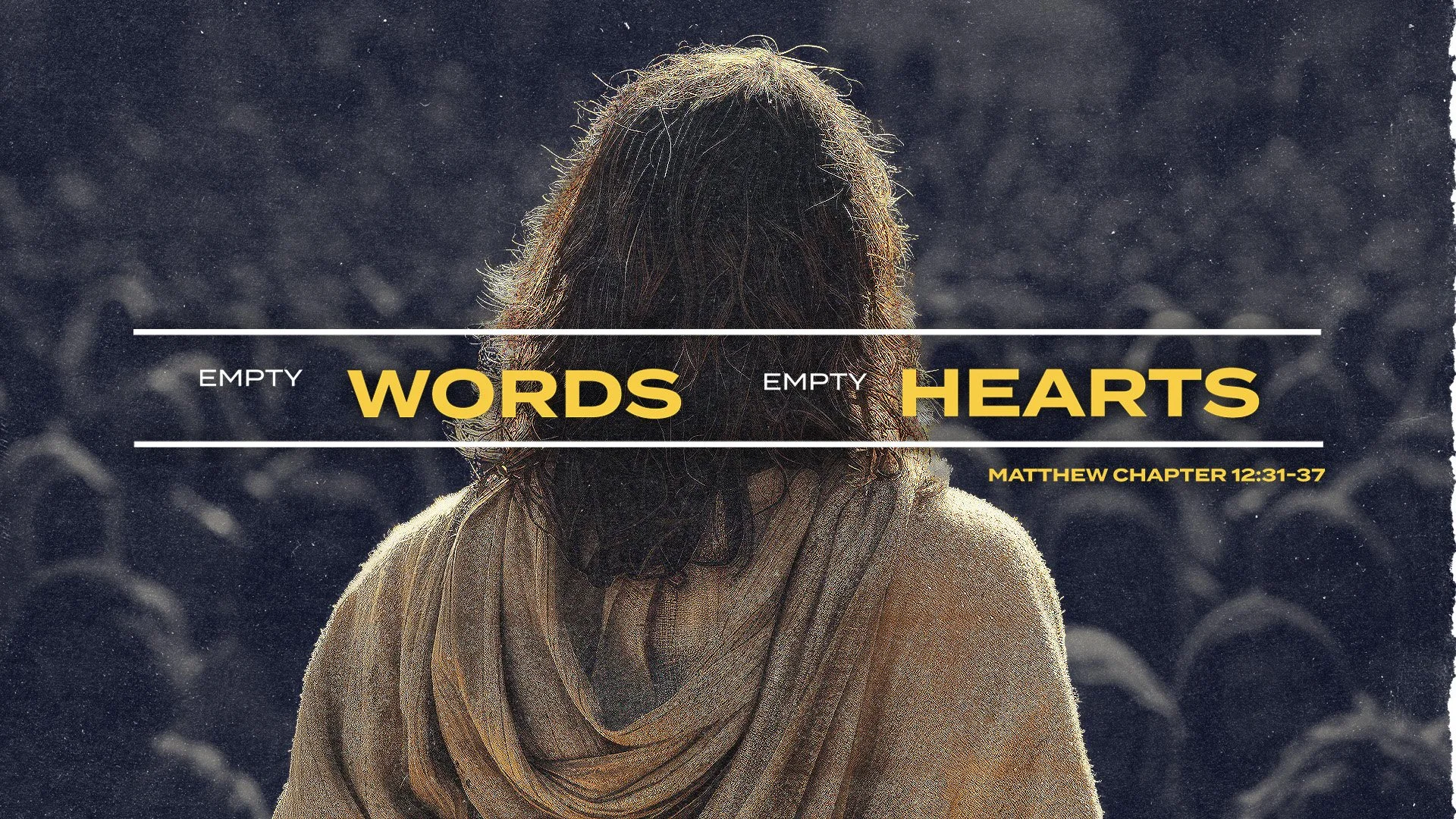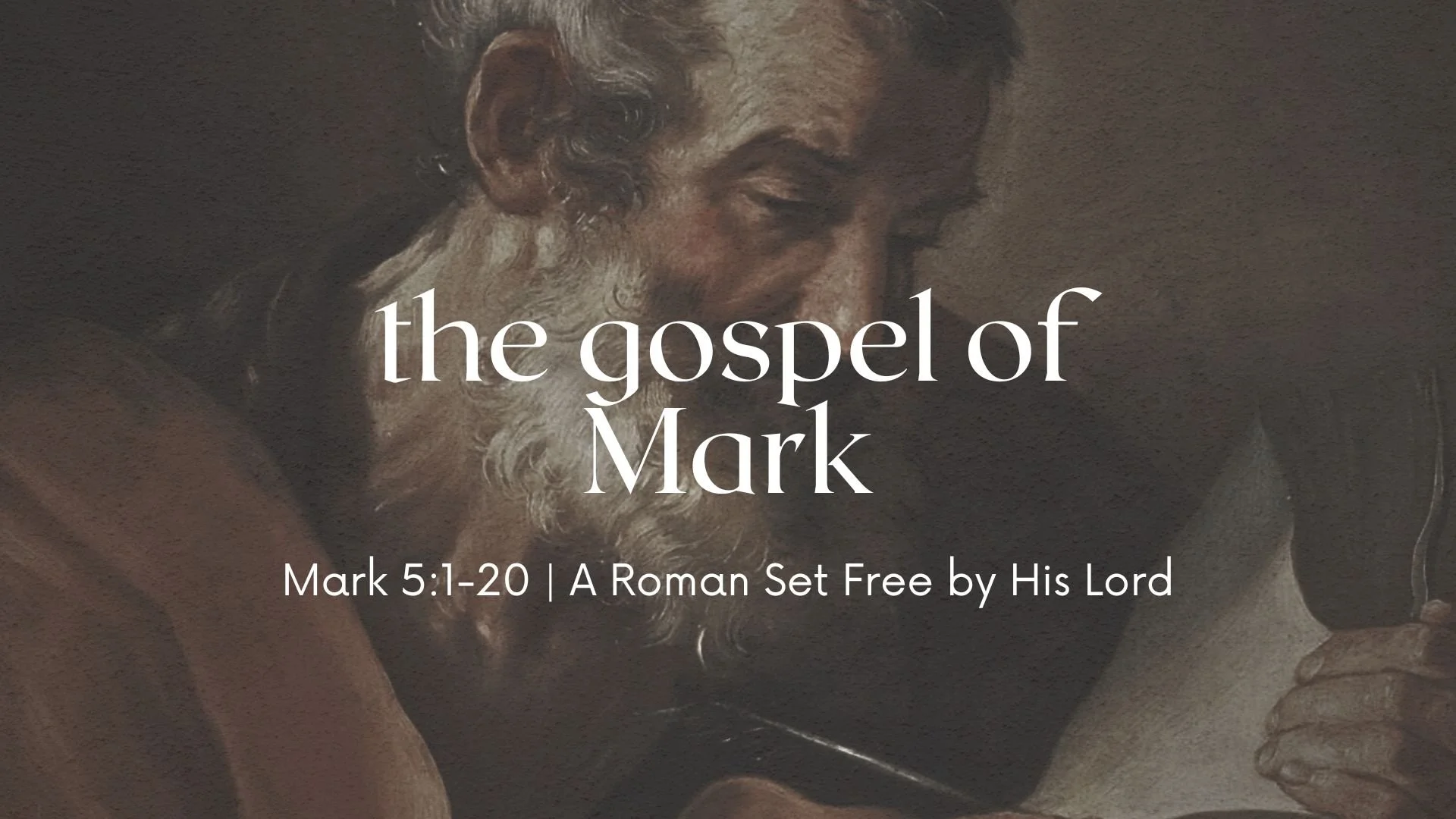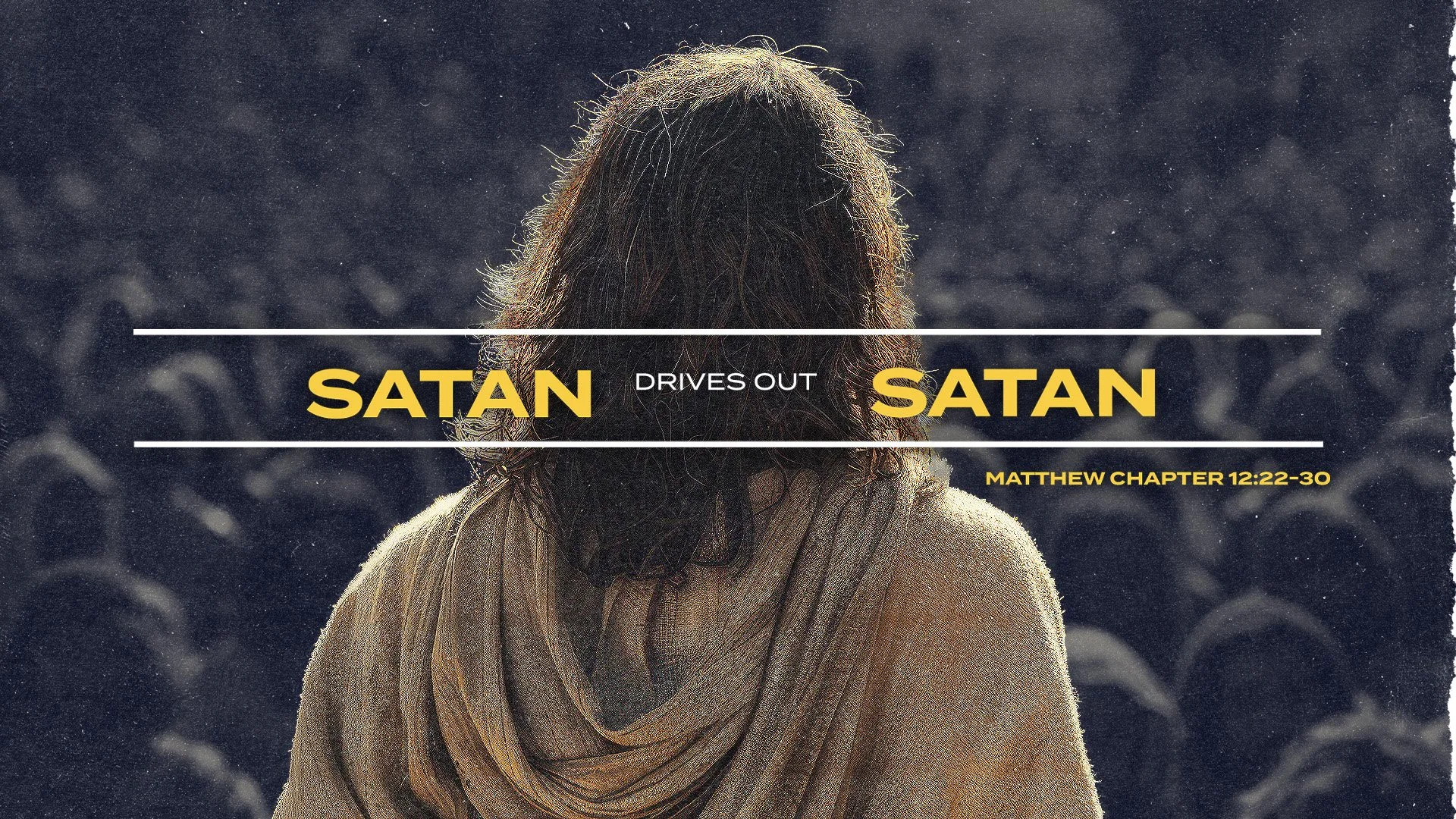New Church Home in OKC
Even on a limited budget, we have lacked nothing in strength, willingness, or manpower. We are already making an impact. Just yesterday, at a choir performance, we met a woman who lives across the street from our building. She shared how excited she is seeing how quickly the HFF family has brought life to the property. That’s the kind of witness you can’t manufacture—it’s the fruit of faith in action.
The Gospel of Mark 8:27-38 - Treason Against Caesar, Allegiance to the True Son of God
In the previous post we talked about the Pharisee challenge to Jesus where they demanded a sign from God to prove that He is the Messiah. Jesus rejected their request and warned the Disciples of the leaven of the Pharisees and Herod (the need for a sign, unbelief). Then He traveled to Bethsaida and healed a man who was blind. Now we see Jesus walking with the Disciples in the area of Caesarea Philippi where He asks them who they believe that He is. After they tell Him what others are saying Peter finally confesses that He is the Messiah, the Son of God. The location of this event is very important and we will discuss it later. Jesus then told the Disciples of His coming death and resurrection and made it clear that they must choose the cross to follow Him.
Understanding the Parable of the Sower
You're not stuck being spiritual roadkill. The Parable of the Sower reveals that you can choose what kind of soil your heart becomes. Will you be the rocky ground that withers under pressure, the thorny soil choked by worldly worries, or the good soil that bears fruit thirty, sixty, and a hundredfold? The kingdom of heaven is yours for the taking - but what kind of soil will you choose to be?
The Gospel of Mark 8:11-26 - Seeing isn’t Always Believing
Some Pharisees come to Jesus with a challenge in mind. They have come to shut him up! They issue this challenge by demanding a sign from heaven. Jesus responds with frustration and tells them that they won’t get a sign (for now). After they exchange words Jesus sets out with the Disciples and He warns them to beware the leaven of the Pharisees and Herod. We will discuss what this means. Coming to Bethsaida Jesus performs a powerful miracle, healing the blind, but in a very interesting way.
Today’s lesson is all about believing God even when things seem a little strange and not demanding things of God, like a sign.
Sabbath, Jesus, and OKC
We have steadily reached 73% of our building fund, and we are so grateful for each of you who has sacrificed to help change the trajectory of our church family. Please continue sharing our vision—there are still people who can partner with us in this journey!
Passover and Christians: The Prophetic Beauty of God’s Redemption Plan
Passover beautifully reveals God’s redemptive plan, foreshadowing Jesus as the spotless Lamb whose sacrifice delivers humanity from sin just as the original Passover lamb delivered Israel from judgment. For believers, the feast is not only ancient history but a powerful testimony that the cross was God’s plan from the beginning and that every detail of Scripture points to Christ.
The Soil You Choose
What if the parable of the sower isn't about God choosing who succeeds spiritually, but about the choices we make every day? Jesus didn't create you to be roadkill - you get to decide what kind of soil your heart becomes. Are you responding to confusion about God with frustration or with humble trust?
The Gospel of Mark 7:31 – 8:10 - Healing Those Who Can’t Hear and Speaking to Those Who are Hungry
After the Pharisaic challenge of eating with unwashed hands and Jesus traveling to the region of Tyre and Sidon He casts out a demon from a little Gentile girl. Jesus takes time for a journey, traveling from the region of Tyre to Sidon and then on to the Sea of Galilee, finally arrives in the region of the Decapolis. Perhaps He does this to let things cool down between the Pharisees and Himself, since He knows that “His time is not yet.” While in the Decapolis He heals a man who couldn’t hear or speak and then proceeds to feed four thousand people! Join us today as we dig into this amazing miracle!
The Secrets of the Kingdom
Ever wonder why Jesus suddenly started speaking in riddles? The day the Pharisees accused Him of using evil power, Jesus began casting forth truth through parables. This wasn't coincidence—it was prophecy fulfilled. What secrets of the kingdom are hidden in plain sight that we might be missing? Are you stretching your ear toward God's mouth, or just casually listening?
The Gospel of Mark 7:1-30 - A Matter of Cleanliness and a Gentile Woman’s Faith
After feeding five thousand men and walking on water, Jesus has drawn even more attention to Himself. The Scribes and the Pharisees decide to confront Him and shame Him, perhaps to lesson His growing fame and notoriety. They challenge Him on an issue they consider important, eating with unwashed hands. Yet Jesus rejects their traditions and instead insists that it is not what you eat that defiles you, but the sin inside of you. It is sin, not food that makes you unclean. Jesus travels to the region of Tire and Sidon where a Gentile woman approaches Him and begs Him to cast a demon out of her daughter. What follows is perhaps the most shocking statement that Jesus has made yet, He calls the woman a dog (we will see the reason for this). Yet she responds with faith and humility. Seeing this Jesus grants her request and casts the demon out of the girl.
Celebrating Ten Years
3,650 days of pastoring this church. Not every minute was easy—but every minute has been worth it. The thousands of lives impacted, the hundreds of families restored, and even those who have moved on—I remember every one of you, and I love you. We have come to a monumental moment............
Who is my Mother, my Brother?
Jesus shocked his audience when he asked: Who is my mother and who are my brothers? His answer will challenge everything you think you know about family and belonging. Are you ready to discover what truly makes someone your spiritual family?
The Gospel of Mark 6:30-56 - Heaven's Bread and I AM Walks on the Waters
The Disciples have come back from their great “mission trip” and now Jesus encourages them to take rest. Yet they are recognized and about five thousand flock to them. Jesus has compassion and teaches them. Yet when there is a need for food the Disciples are unable to feed them. Instead, Jesus multiplies fish and loaves and feeds everyone until they are content. The Disciples go ahead in the boat and Jesus spends some time in prayer. He then catches up to them while they are struggling to cross by walking on the water. The disciples didn’t understand or have faith, which is compared against those who come to Him for healing who do believe.
Less Deliverance, More Repentance
Can casting out demons actually make your spiritual condition worse? Jesus' shocking parable in Matthew 12 reveals why deliverance without repentance leaves you more vulnerable than before. An empty spiritual house is an invitation for seven demons to move in. Are you focusing on removing the negative while forgetting to fill the space with God's presence?
The Gospel of Mark 6:7-29 - Walking in the Authority of Jesus and the Cost of Apostleship
After His rejection at Nazareth Jesus anoints the Disciples and sends them out. He gives them authority over demons and demonic powers. They must trust God for their provisions, not taking money, food, extra clothing, or provisions. They are only allowed to carry a staff (weapon). If they are rejected on this mission they must shake off the dust from their feet which we will see had significant meaning in their culture. And so the Apostles did go out, calling everyone to repent. The people responded with faith and many were healed and demons were cast out. Lastly we see the memory of the death of John the Baptist.
Greater Than Jonah, Greater Than Solomon
The religious leaders had seen Jesus heal the sick, raise the dead, and cast out demons. Yet they still demanded more signs. Why? Because the problem wasn't lack of evidence - it was unwillingness to surrender control. The violent city of Nineveh repented without seeing a single miracle, while these leaders refused to change despite witnessing thousands. What areas of your life are you keeping off-limits to God's lordship?
The Gospel of Mark 5:21 - 6:6 - The result of faith and disbelief
After healing the demonized man, Jesus returns to His side of the lake, probably Capernaum. On His way to heal a sick girl, a woman who had been bleeding for many years touched Him and was healed. He continues on to heal the girl but she dies before He can get there. Encouraging the father to have faith He ends up raising her from the dead. After these great works He goes to Nazareth where He is met with only rejection and insults.
Empty Words, Empty Hearts
\\\\\\The unforgivable sin isn't a careless word or mistake, but the willful, persistent rejection of God's grace by attributing the Holy Spirit's work to evil forces. This sin becomes unforgivable not because God withholds mercy, but because a hardened heart refuses to receive it. Without the Holy Spirit's conviction, repentance becomes impossible, and without repentance, there can be no forgiveness. We must examine our hearts and recognize that the most dangerous force isn't demonic power, but rejecting the Holy Spirit's ability to save, heal, and restore our lives.
The Gospel of Mark 5:1-20 - A Roman Set Free by His Lord
Jesus comes across the sea and lands on the shore. He is immediately met by a man who is possessed with many demons. Even though He is in a gentile area, and this man is a gentile, Jesus takes action and casts the demons out. The demons enter some pigs that are nearby with Jesus’ permission. The pigs run into the sea and drown. This causes great fear in the locals, and they beg Him to leave. This is in direct opposition to the man He healed. This man begs that He might follow Jesus. Yet Jesus sends him to his home to spread the word about what Jesus had done.
Satan Drives Out Satan
If Satan's mission is to steal, kill, and destroy, why would he set captives free? Jesus' powerful response to the Pharisees reveals a shocking truth about spiritual warfare that every believer needs to understand. Are you gathering people to Jesus or scattering them through criticism? The answer might surprise you.What if true power isn't about force, but about gentleness? Jesus revolutionized kingship by choosing restoration over punishment, healing over crushing. He doesn't snuff out flickering flames - He fans them back to life. Are you ready to discover the gentle king who brings hope to all nations?


